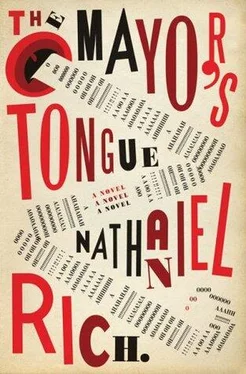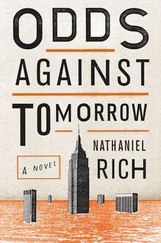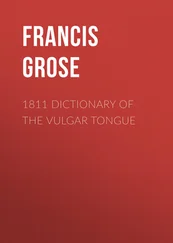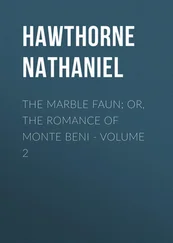Eugene was growing uneasy. The Carso's alpine air stifled his lungs. Pine needles raked over his chest and face and fell into his book bag. They had passed the tree line that morning and now the light was cool and too bright.
"Hardly there!" shouted Lang. "Not even close!"
"But we're near the top of the slope, I can see it myself." And it was true, the last visible ridge now appeared in sharp detail above them. Its rough limestone gave off jagged sparkles.
"Ha! Shows what you know!" Lang gave his jackal smile and stopped to examine his beret." We'll freeze if we have to sleep in the woods tonight. Of course, we could always go back to Goran's."
Eugene thought about that for several minutes before responding. He decided Lang was trying to scare him. There was something up the mountain that terrified Lang.
"I'm not going back now."
Lang's eyes whisked around like flies in his head and he couldn't keep his knees still.
"Well then, so that's how it is. You're quite headstrong for someone with nothing to gain."
"What are you afraid of anyway?"
Lang shook his head and eased down into his squat. He picked up a pine cone and, scrutinizing it, began to peel off its scales. He put one in his mouth and chewed absentmindedly.
Eugene wondered how bad conditions could get on the Carso. Could it really be so harsh that he would die? His thoughts turned to his translation of Alvaro's novel, which, along with the assorted hiking snacks Lang had made him carry, weighed down his bag. There was no other copy of the manuscript — Alvaro had entrusted him with the only one — and he was anxious about losing it. In his room in Trieste he had finished translating the second section, in which Jacinto saves beautiful Alsa from a tribe of cannibals, only to have her contract a horrible disease. She is bitten by a deadly shinefish while swimming through a swamp to escape the cannibals, and Jacinto begins to fear for her life.
Lang spat out the pine scale. His jaw started excitedly to ticktock.
"I have to admit something. I told you I was born in this town where we're going. That's not exactly true. I remember being born elsewhere. Glimpses: a mother's smile, a breakfast of strawberry scones and chamomile tea, a schoolteacher who paddled me with aluminum metric rulers when I skipped class, the dusklight slanting through the leaves of a Joshua tree under which I would sit and read my favorite authors — well, I really can only recall reading Eakins but surely there must have been others. And of course, very vividly, the bookstore where I worked."
"Where was this? Where did you grow up?"
"A town in the American West, on the edge of the Mojave Desert. You wouldn't have heard of it. One day there was a murder in the town — it's a long story, but I played a small part in the investigation. Suffice it to say it was a difficult affair and it exhausted me so to think about it that I passed into some kind of sleep. The next thing I knew, I was waking up in a bed in this village in the Carso. Quite far away from my sad, no-name town on the edge of the Mojave!"
"But how did you get there?"
"The Carso plays tricks with one's memory," said Lang. Since that morning Eugene had played along with whatever Lang had said. He didn't want to risk upsetting the man, and being stranded in the woods. After all of their weaving, Eugene had no idea where they were. But now he feared for Lang's mind.
"I never would have thought you grew up in America."
"I wonder myself now if I did," said Lang. "If I ever saw a Joshua tree. Or helped solve a murder mystery. The memories have faded quickly these last ten years. But let me ask you: have you noticed any effect on your memory since being here?"
"Not exactly. But I keep seeing strangers who look oddly familiar — a man weeping on the street in Trieste, or Sonia's friend Kasia."
Lang winced.
"I have to leave you here, Eugene. I'm sorry."
"What? You can't! Why?"
"Don't worry, there's a town right around that bend. And the other town, the town you're looking for, is only a half-day's hike farther. That's where I'llforward your father's mail. But I can't go on. You might not understand this now, but you will soon. I've gone this far for Abe, for Alice, and for you. But I have to stop here. For me."
A loud warbling wail rang out ahead of them, as if in protest of Lang's proclamation.
"A birthing roe deer," said Lang, by way of explanation. He rubbed the hair under his beret with an air of irritated preoccupation. "Or possibly a hare snared in a boar trap."
The sound was close by, so Eugene went to investigate. He walked around the next twist in the trail and saw a man's body. It was lying prostrate, half on and half off the path. His head hung down into the abyss.
"Don't jump!" shouted Eugene, running over. He grabbed the man, who was trembling, and pulled him back. The jacket swung over his head and Eugene recognized him at once.
"Enzo?"
Disconsolate, the boy rubbed his wet face, streaking it with mud.
"Do you know this man?" asked Lang, scurrying over. Enzo's hands began to claw at the gravel and moss. The noise made Eugene shiver.
"I think he's like this all the time," said Eugene. "I saw him in Piazza Scorcola the other day — I was just telling you about him. He was sobbing then too."
"Money trouble?" asked Lang. "Or a woman. It's one or the other. Always is."
"Una donna bellississima!" said Enzo. His linen shirt was tattered and smudged with grass stains.
"He's been climbing too," said Lang. "But without a guide."
"What's wrong?" asked Eugene.
"I–I—I—"
"Yes?" asked Lang, in a steaming falsetto.
"It's so sad," said Enzo. "It's so very, very, very, very—"
"Sad?" asked Lang.
"You understand me!" said Enzo, gratified. "You understand me completely!"
"It's not so hard," said Lang. "What's her name?"
"She is my true love," said Enzo. His voice dropped. "And she has vanished, as far as I can tell. Vanished into nothing at all."
"Maybe I know her. What's her name?"
"Does it really matter? As if she were of this world! Can you paint an angel? What colors would you use? What colors!"
Lang pressed his lips together until they turned white.
"Were I even to whisper her name," continued Enzo, "it would crumble this mountain and crack open the sky. On our very heads!"
"You don't know her name, do you?"
Enzo's eyes began to well up with tears again.
"It's fine if you don't know her name," said Eugene in a calming voice. He was alarmed by Lang's sudden anger. Eugene credited it to whatever other anxiety was bothering him.
"I know your type," continued Lang. "You don't even know what love is."
"Oh yes!" exclaimed Enzo. "Oh yes, I do. I have spent my life in search of it."
"Bah!" said Lang, thrusting his arms in the air. "Crap! I'lltell you what love is. It's better you learn it now before you go all the way up there. You are going up the mountain, aren't you?"
"Oh yes. Yes, I am. It is the only place left for me to go," said Enzo. "I figured—"
"Figured nothing," piped Lang. "Love. Love is that."
He pointed to a tree.
"A fig tree?"
"Yes. A fig tree. Love is a rock. Love is around every corner and in the garbage cans overflowing in every alley in Trieste. It is the open air above us. And it's below, down there."
Lang pointed off the trail, into the abyss. Eugene followed his finger and saw, at a depth of about two hundred feet, a thin current falling down the rocky ravine and disappearing into a cave.
"A river?" said Enzo.
"Not any river. The Timavo. If you follow it down the mountain, you'llfind your love there."
"She's in Trieste?"
"I don't know where your girlfriend is. I imagine she might be up there. But I warn you. Don't return. If you go back up to Idaville, you'llnever leave again. Safer to go back to Trieste. That's where I'm headed.
Читать дальше












